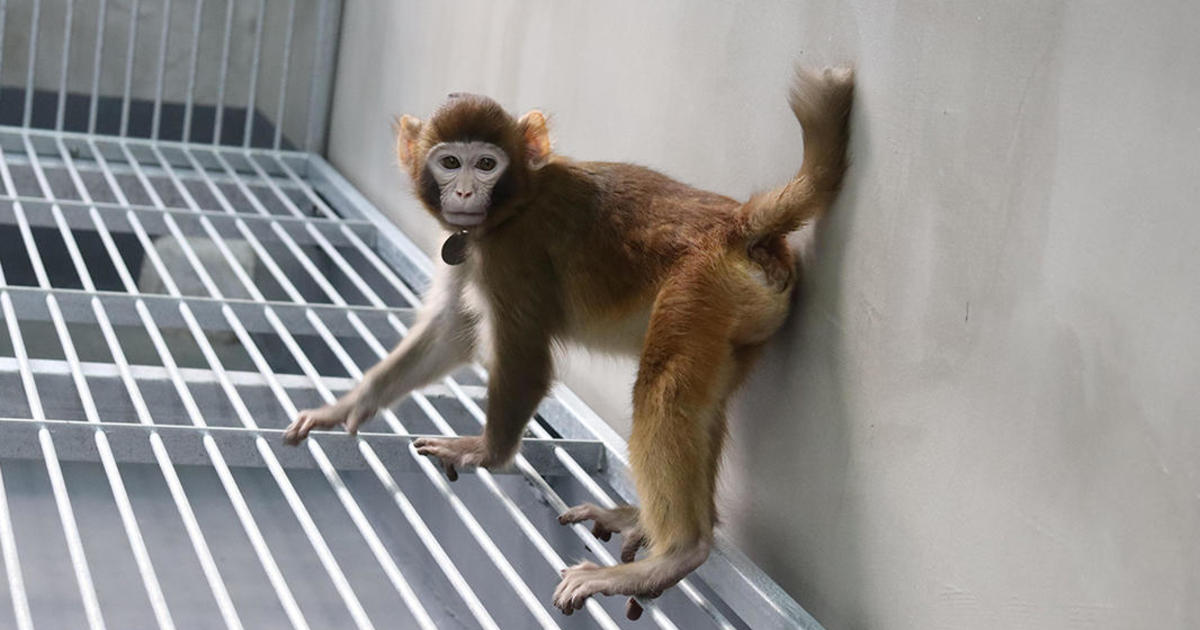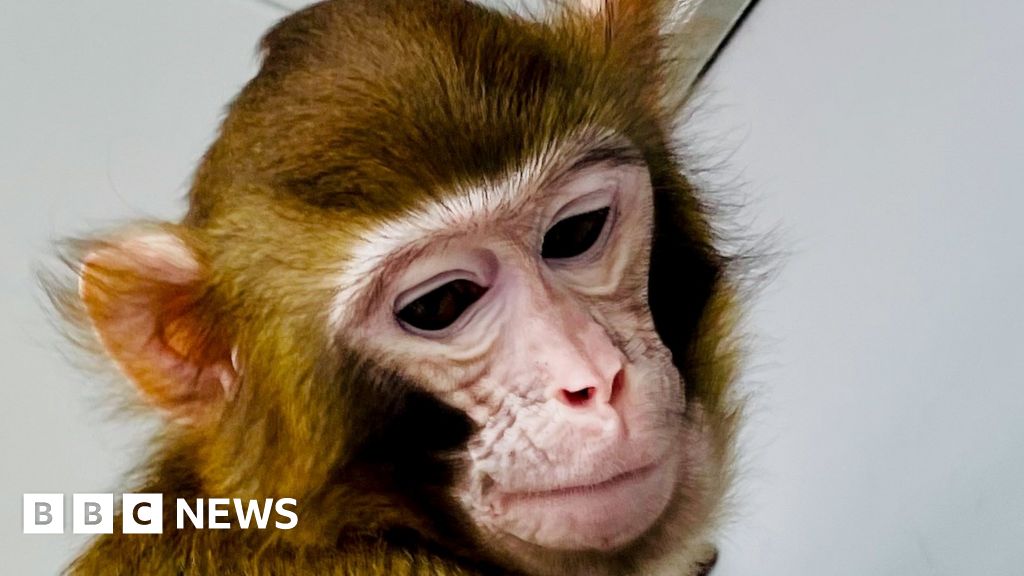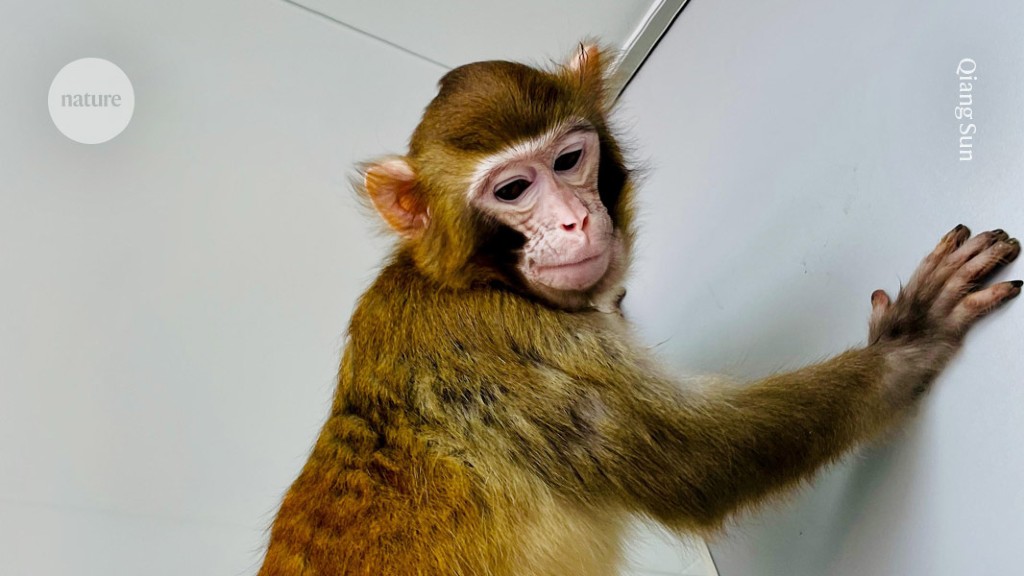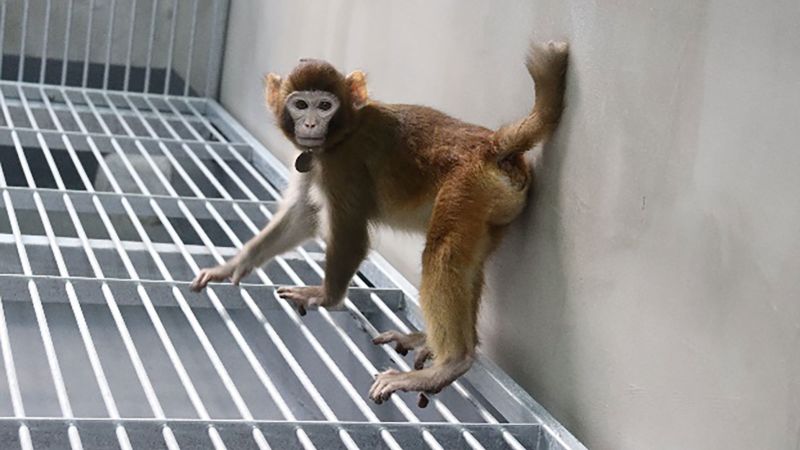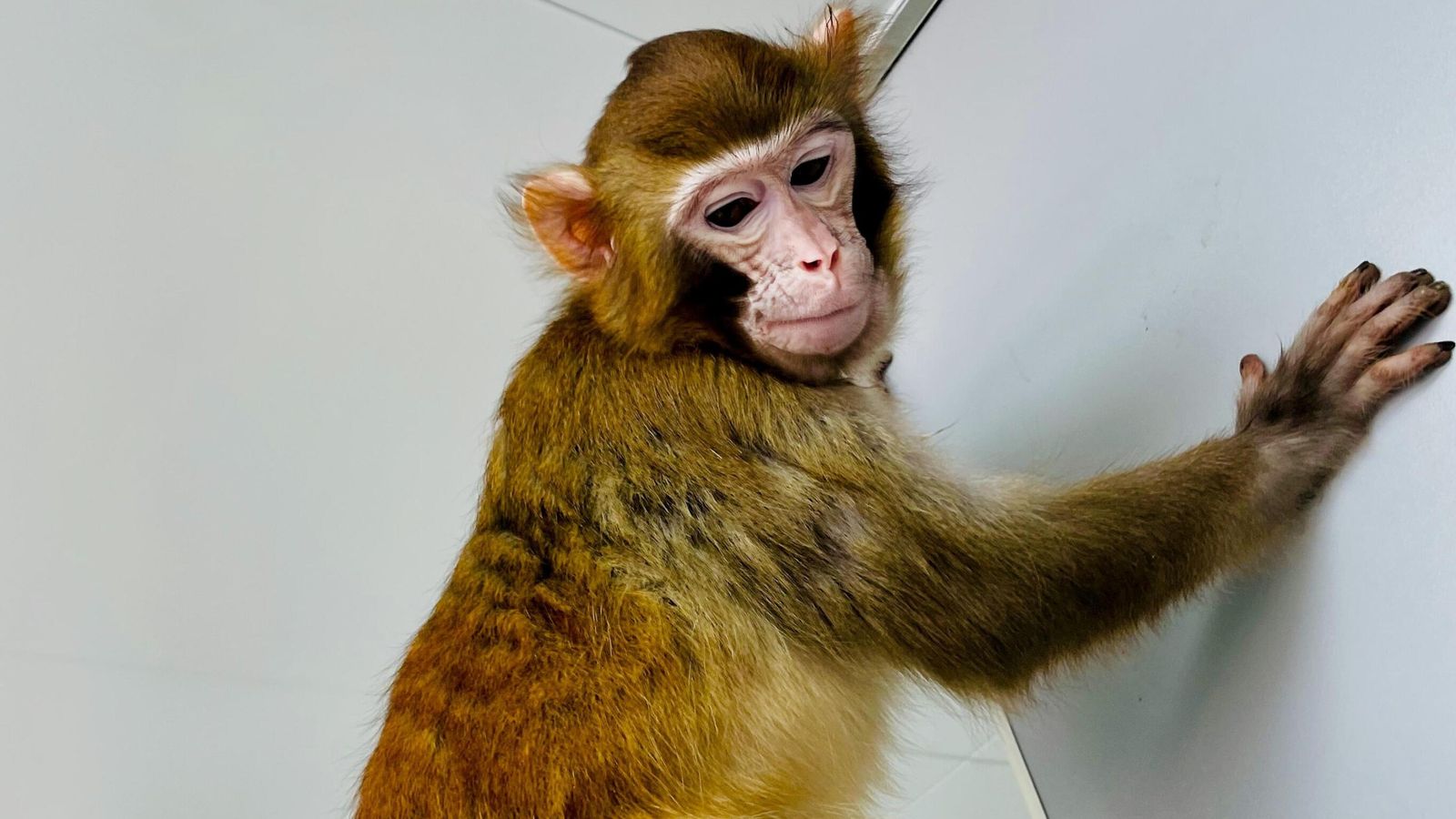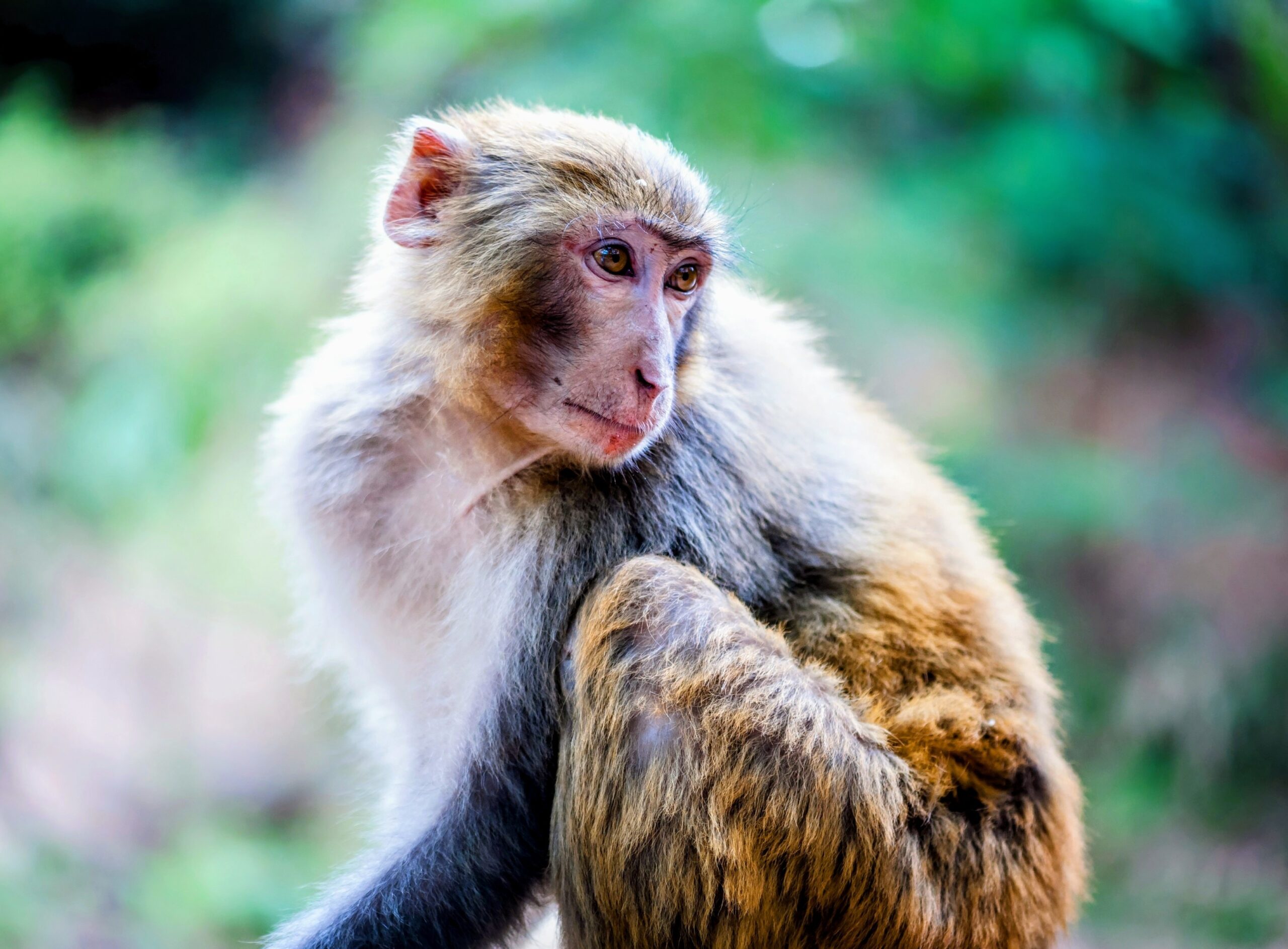Chinese scientists have successfully cloned a rhesus monkey, named ReTro. This achievement, published in the journal Nature Communications, has implications for medical research, drug testing, and behavioral studies.

Also Read: Gigantopithecus Blacki: Earth’s Largest Ape Went Extinct 100,000 Years Earlier
Rhesus monkeys, due to their physiological similarities to humans, are invaluable models for studying diseases, including Parkinson’s, Alzheimer’s, and cancer.
The researchers employed a modified cloning approach, deviating from the conventional somatic cell nuclear transfer (SCNT) technique used for cloning mammals like Dolly the sheep.
SCNT typically results in low birth and survival rates for cloned embryos, especially in primates. Previous attempts at cloning long-tailed macaques in 2018 and a rhesus monkey in 2022 had limited success, with low survival rates and developmental defects.
The scientists at the Chinese Academy of Sciences in Shanghai conducted a thorough investigation. They compared 484 SCNT rhesus embryos with 499 embryos produced by in vitro fertilization (IVF).
The analysis revealed huge differences in the patterns of epigenetic modifications, particularly a decrease in DNA methylation, which affects gene expression.
The researchers also found abnormalities in placenta development during the cloning process, leading to defects and reduced survival rates.
Also Read: NASA and Lockheed Martin Unveils X-59 Quiet Supersonic Aircraft
In response, they developed a technique involving trophoblast replacement. Instead of using the entire cloned embryo, including the outer layer forming the placenta, they extracted inner cells responsible for body development and inserted them into a non-cloned outer embryo.
This method is to encourage the development of a normal placenta while maintaining the cloned nature of the fetus.
Using this trophoblast replacement technique, the researchers implanted 11 cloned rhesus monkey embryos into seven surrogates, resulting in two pregnancies.
One of the surrogates gave birth to ReTro, a healthy male rhesus monkey that has thrived for over two years.
This success shows the potential of the new technique in overcoming developmental defects associated with traditional cloning methods.
While the birth of ReTro represents an achievement, challenges remain in improving the efficiency of the cloning process.
Also Read: Peregrine 1: Vulcan Rocket Launched the First US Moon Lander in Decades
The low success rates and the need for a number of embryos and surrogates pose ethical concerns. Some say that the suffering and distress experienced by animals in these experiments, with the high failure and mortality rates, has serious ethical questions.
The successful cloning of a rhesus monkey opens new possibilities for medical research. Scientists envision using genetically identical monkeys to conduct drug testing and behavioral research, to reduce the number of animals used in experiments and eliminate genetic background interference.
Cloned monkeys offer an opportunity to study complex diseases and test the efficacy and safety of drugs in a controlled setting.
Animal rights advocates, including the UK’s Royal Society for the Prevention of Cruelty to Animals (RSPCA), express concerns about the suffering and distress caused to animals in cloning experiments.
Scientists address the importance of obtaining more cloned monkeys while reducing the number of embryos used in future experiments.
The benefits of cloning, including accelerated biomedical research and disease modeling, need to be balanced against the ethical considerations and animal welfare concerns associated with this technology.
Also Read: China Reveals Fujian the Next-Gen Aircraft Carrier

